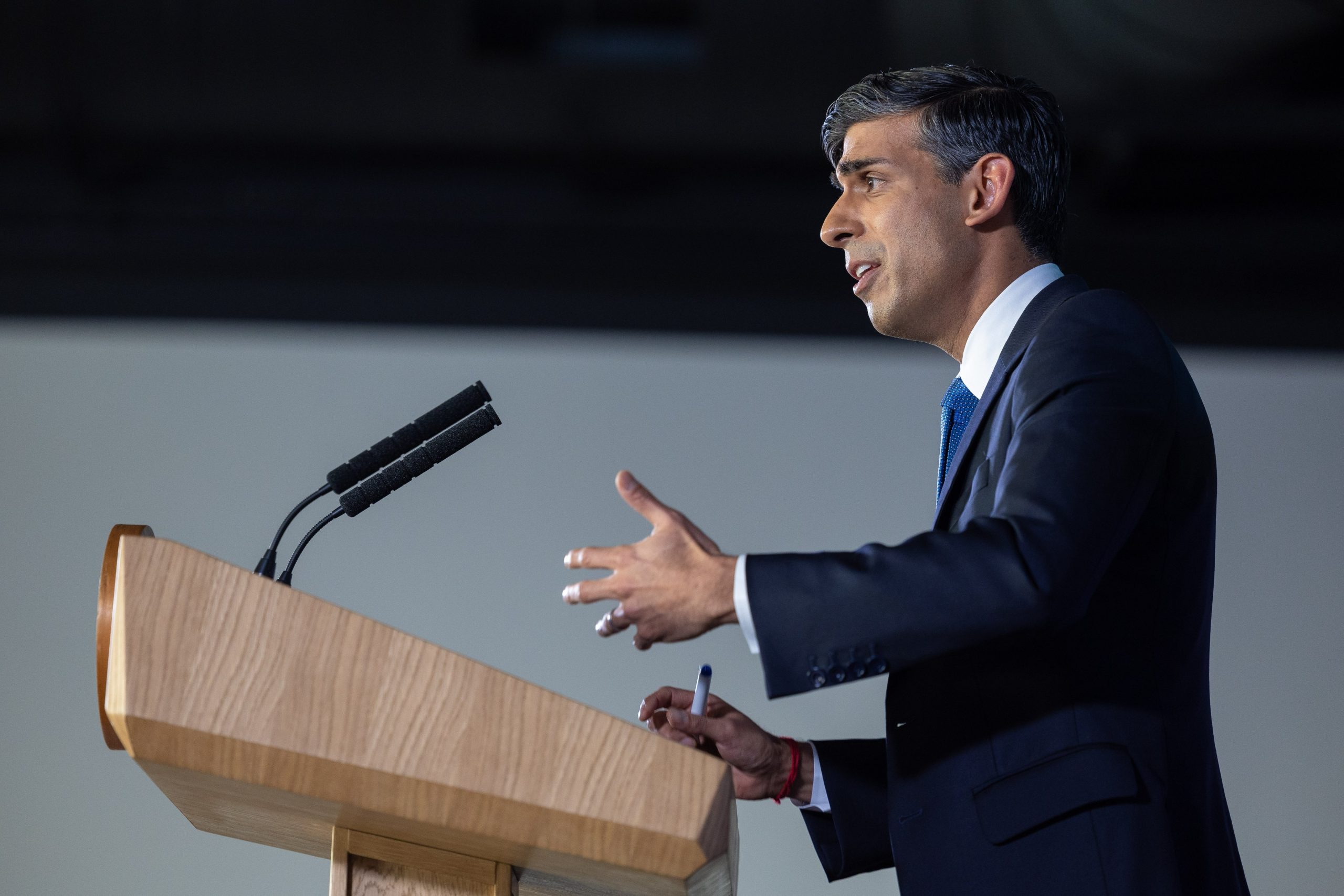News
Rishi Sunak is introducing the polarised climate politics of the US, Canada and Australia to the UK

FILE: Prime Minister Rishi Sunak. (Photo: Rishi Sunak @RishiSunak/Twitter)
In two recent speeches, UK prime minister Rishi Sunak highlighted the costs of everything from heat pumps to electric vehicles as justification for weakening the country’s climate policy. There is a strategy behind this, but it’s one that risks ending a fragile cross-party consensus on net zero and turning the climate into a highly polarised issue.
The benefits of a decarbonised and more energy-efficient economy outweigh the costs over the long term. However, politics is often about the short term, specifically the next election.
The political difficulty is that the green transition really does entail relatively high investment costs for voters over the short run. Electric vehicles are currently more expensive than their fossil-fuel-powered counterparts. Heat pumps are more expensive than gas boilers. Improving the energy efficiency of homes is expensive.
Indeed, the costs that the PM cited in his September 20 speech are broadly in line with what the Climate Change Committee (CCC), the country’s official climate policy advisory body, has said.
For example, the CCC estimates that the average cost to decarbonise an existing home is just under £10,000, while other estimates put it closer to £20,000. This is not a trivial amount considering that median disposable income is £32,000 a year.
Appealing to concerns about short-term costs like these, whether they be related to climate policy or any other area of government action, is a classic strategy for winning swing voters. In political science, one of the most well-documented factors influencing vote choice is the state of the economy, especially growth, wages and prices.
The strategic move is this: make the costs (both real and imaginary) more salient to voters and then say that you will cut them. This framing does two things.
First, it makes you the bold candidate of change, and not just another PM from a party that has been in power for 13 years and has a poor record of governance.
Second, it puts the onus on the Labour party to now declare that it will be the party of increasing costs for voters, which the Tories can then turn into all sorts of pithy slogans on the campaign trail and in debates.
In any case, the Tories might want a less stringent climate policy anyway. So even if they lose the election, they can lock in their preferred policy direction. Again, this then makes a new Labour government have to be the one to reverse the policy and impose costs on households. And if Labour does this, the Conservatives can use it as ammunition at the next election.
It is telling that the PM mentions households over and over in his speeches but says virtually nothing about business. In a highly competitive electoral environment, what matters is votes. Plus, this strategy of keeping climate policy costs low for consumers has a long history in the UK across both parties.
In 2000, Labour scrapped the fuel duty escalator after protests from motorists. The Climate Change Levy, adopted by Labour in 2001, exempts consumers. Fuel duty was frozen after 2011 before being reduced by Sunak in 2022 when he was Chancellor.
Similar climate politics in similar countries
UK governments share a sensitivity to imposing costs on consumers with their counterparts in other countries with first-past-the-post electoral rules, such as Australia, Canada and the US. Under these rules, elections tend to be very competitive contests over attracting voters in a handful of key marginal constituencies.
Imposing costs on them is unlikely to win their favour, and politicians know this. Consequently, climate policy in these places entails many fewer costs for households compared with northern Europe, for example. The US’s flagship climate policy, the Inflation Reduction Act, imposes no costs on consumers, offering only subsidies.
While it is commonplace for conservative parties in Australia, Canada and the US to make the costs of climate action salient to voters, it has not been a dominant strategy for the Tories. Instead, there has been relative cross-party consensus in the UK. However, this appears to be fraying as the economy deteriorates, the policy costs mount and the Conservatives fall behind in the polls.
The breakdown of cross-party consensus, if that is what we are witnessing, would make the UK much more like its cousin across the Atlantic, where deep political polarisation stymies climate action and the right tries to win votes by scaring people that the costs of addressing climate change are higher than the “combined annual GDP of every nation on Earth”.
Political will can evaporate quickly
The irony of Sunak declaring that this cynical, short-term strategy of vote maximisation is putting “the long-term interests of our country before the short-term political needs of the moment”, while standing behind a podium reading “Long-Term Decisions for a Brighter Future”, should be lost on no one.
Whether it will work is not clear yet. A recent YouGov poll shows 38% agree that the government should keep all current plans in place to reach net zero, while 43% say they should either be delayed or abandoned.
More broadly, this case underscores the political difficulty of imposing sustained costs on consumers, and how the much called for, but ever-elusive, “political will” to address climate change, can evaporate quickly in the face of short-term political expediency. It is but one example of a larger and more structural incongruence between the politics of now and the need to address looming crises on the horizon.![]()
Jared J. Finnegan, Lecturer in Public Policy, UCL
This article is republished from The Conversation under a Creative Commons license. Read the original article.





















